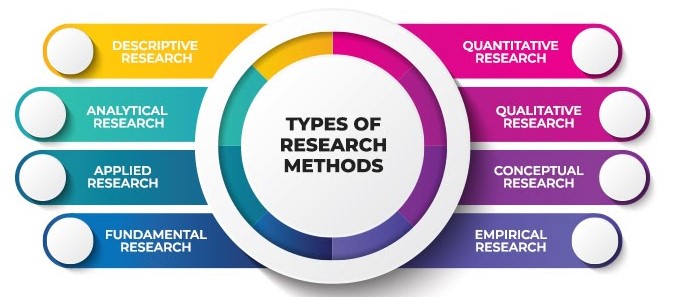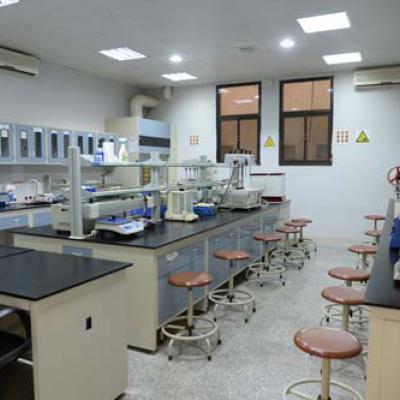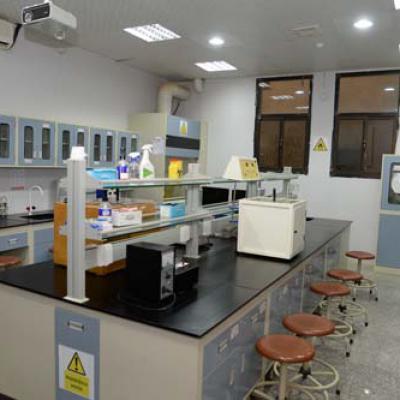Types of Educational Research
Educational research can be broadly categorized into 3 which are descriptive research, correlational research, and experimental research. Each of these has distinct and overlapping features.
Descriptive Educational Research
In this type of educational research, the researcher merely seeks to collect data with regards to the status quo or present situation of things. The core of descriptive research lies in defining the state and characteristics of the research subject being understudied.
Because of its emphasis on the "what" of the situation, descriptive research can be termed an observational research method. In descriptive educational research, the researcher makes use of quantitative research methods including surveys and questionnaires to gather the required data.
Typically, descriptive educational research is the first step in solving a specific problem. Here are a few examples of descriptive research:
- A reading program to help you understand student literacy levels.
- A study of students' classroom performance.
- Research to gather data on students' interests and preferences.
From these examples, you would notice that the researcher does not need to create a simulation of the natural environment of the research subjects; rather, he or she observes them as they engage in their routines. Also, the researcher is not concerned with creating a causal relationship between the research variables.
Correlational Educational Research
This is a type of educational research that seeks insights into the statistical relationship between two research variables. In correlational research, the researcher studies two variables intending to establish a connection between them.
Correlational research can be positive, negative, or non-existent. Positive correlation occurs when an increase in variable A leads to an increase in variable B, while negative correlation occurs when an increase in variable A results in a decrease in variable B.
When a change in any of the variables does not trigger a succeeding change in the other, then the correlation is non-existent. Also, in correlational educational research, the research does not need to alter the natural environment of the variables; that is, there is no need for external conditioning.
Examples of educational correlational research include:
- Research to discover the relationship between students' behaviors and classroom performance.
- A study into the relationship between students' social skills and their learning behaviors.
Experimental Educational Research
Experimental educational research is a research approach that seeks to establish the causal relationship between two variables in the research environment. It adopts quantitative research methods in order to determine the cause and effect in terms of the research variables being studied.
Experimental educational research typically involves two groups – the control group and the experimental group. The researcher introduces some changes to the experimental group such as a change in environment or a catalyst, while the control group is left in its natural state.
The introduction of these catalysts allows the researcher to determine the causative factor(s) in the experiment. At the core of experimental educational research lies the formulation of a hypothesis and so, the overall research design relies on statistical analysis to approve or disprove this hypothesis.
Examples of Experimental Educational Research
- A study to determine the best teaching and learning methods in a school.
- A study to understand how extracurricular activities affect the learning process.
Based on functionality, educational research can be classified into fundamental research, applied research, and action research. The primary purpose of fundamental research is to provide insights into the research variables; that is, to gain more knowledge. Fundamental research does not solve any specific problems.
Just as the name suggests, applied research is a research approach that seeks to solve specific problems. Findings from applied research are useful in solving practical challenges in the educational sector such as improving teaching methods, modifying learning curricula, and simplifying pedagogy.
Action research is tailored to solve immediate problems that are specific to a context such as educational challenges in a local primary school. The goal of action research is to proffer solutions that work in this context and to solve general or universal challenges in the educational sector.
Importance of Educational Research
- Educational research plays a crucial role in knowledge advancement across different fields of study.
- It provides answers to practical educational challenges using scientific methods.
- Findings from educational research; especially applied research, are instrumental in policy reformulation.
- For the researcher and other parties involved in this research approach, educational research improves learning, knowledge, skills, and understanding.
- Educational research improves teaching and learning methods by empowering you with data to help you teach and lead more strategically and effectively.
- Educational research helps students apply their knowledge to practical situations.









